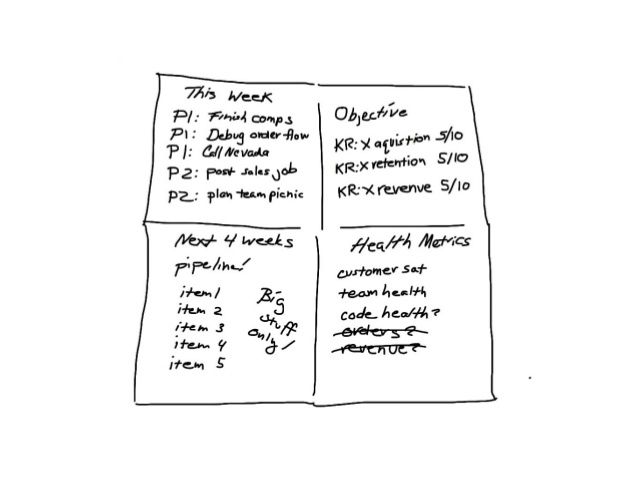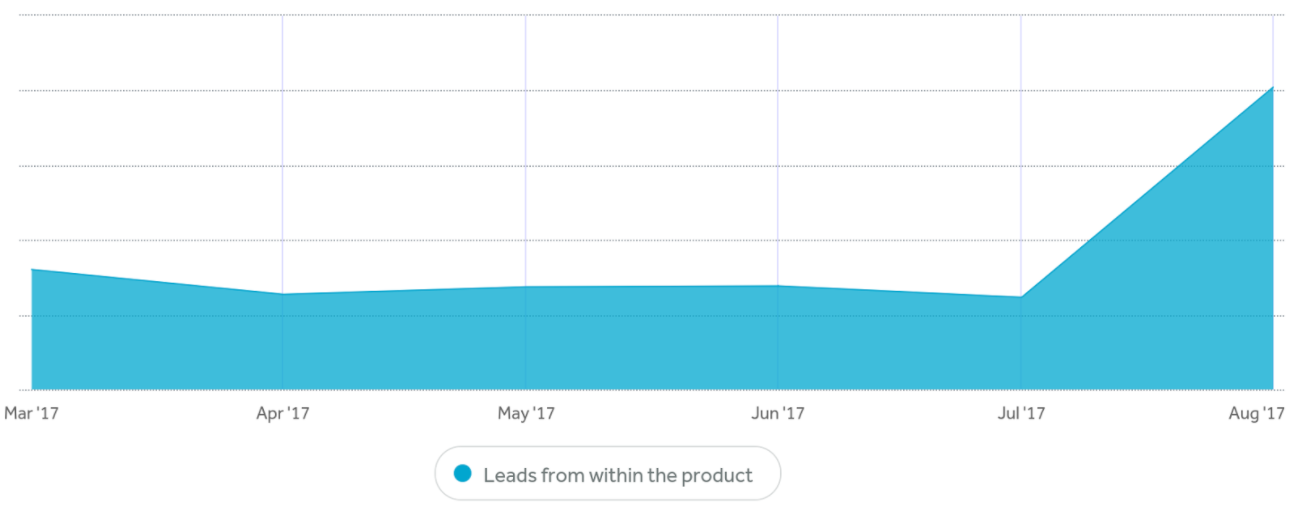A successful product team
Its hard to describe our full process at Trustpilot in an easy to read blog post, it would take words enough to write a full book, not because it's complicated, but because it's different.
Instead of describing the full process from goal setting to delivering a product, iterating on it, fixing bugs to one day sunsetting it I have decided to try and describe how a successful quarter looks like for one of our teams.
The north star
A quarter kicks off before the physical quarter starts with planning. Our product leadership group define a rolling 12 months plan that describes what areas of our product we are going to focus on, the plan is very light and only about 7 pages long for all of our 9 teams.
That plan gives us a north star for the individual team. I as the manager then discusses the quarter scope with the product manager and teach lead from the team. The scope, in this case, was "We need more leads from the product, how do we get that?".
Setting objectives
The product manager and tech lead then goes back to the team and together with their deep knowledge of the product area, the customers and our technology write an objective with a set of key results, this is called an OKR.
The teams OKR looked like this:
Objective:
Increase the amount of leads given to sales that have a source from inside of the product.
Key results:
Double upgrade requests from X to Y a month Keep the sales conversion rate at the same level The key results should be set so that the team feels compatible with achieving 50% of the goal. We are looking to stretch the team to archive breaks through results. The OKR is challenged and approved by me and communicated to the rest of the company.
Today we also ask the team to write what we call a Team Quarterly Plan where they outline the business why of the objective. What will the impact be on the business if we achieve it? In the plan, they also describe what they know right now about the area they will be working in. This part of the process is new, so still to validate if it makes sense.
Doing real work
Now the fun starts. The team sets out to do discovery to figure out how they can double our number of leads. What is making users ask for upgrades? What is stopping users from upgrading? Can we tweak the UI? Are there bigger issues?
We check in with the team in a bi-weekly meeting where the management team together with the product manager and the tech lead discusses the work that is going on in the team right now, what learnings they have made, how the team is doing etc. We use the check-in format described in Radical Focus to do this.
This meeting is also where we (management and team together) evaluates if we believe that we can achieve a meaningful impact on our key results if it turns out that we can't move the numbers in any meaningful way we have to stop and set new goals for the team.
 In this quarter the team did a lot of discovery and tests, both with messaging and UI all around our product, I can't recall the number of tests and discovery sessions the team did, but it was a lot.
In this quarter the team did a lot of discovery and tests, both with messaging and UI all around our product, I can't recall the number of tests and discovery sessions the team did, but it was a lot.
Gold
It turned out that most of the tests they were running only produced results that were not meaningful to implement. But if you continue mining you will find gold in the end and as the quarter was running out and the team was started to be a bit stressed out over missing results they hit gold.
The team ended up not doubling leads, but trebling them! An achievement with huge business impact. Now a few months later we can see that revenue from that source has followed the number of leads and have trebled to taking that source to be our most successful inbound lead source.
 And the craziest thing about this story? The amount of time that the team used on developing the working solution when they discovered it was counted in days, not weeks or months. The developers on the team was a big part of the discovery process, running tests, talking to users, iterating and brainstorming. This to me proves that if your developers are only writing code and not taking part in discovering the solutions you are wasting their talent.
And the craziest thing about this story? The amount of time that the team used on developing the working solution when they discovered it was counted in days, not weeks or months. The developers on the team was a big part of the discovery process, running tests, talking to users, iterating and brainstorming. This to me proves that if your developers are only writing code and not taking part in discovering the solutions you are wasting their talent.
We know nothing
The results that the team achieved doing the quarter and the process to get there is a fantastic example of the fact that we know absolutely nothing. We did not know the solution, a lot of our guesses for solutions was proved wrong with tests. We did not know when we were done, we almost ran out of the dedicated time for the objective. We did not know the outcome, we felt compatible with achieving 0.5X growth in leads, sat the goal for 2X and ended up delivery a 3X. That is the result of an amazing process and team!
For me this is the cornerstone in how we work, our process helps us discovery breakthrough solutions that achieve massive impact on our business instead of a few dumb people (read: me) guessing and gambling with our resources to develop features where we don't have a clue about their impact.